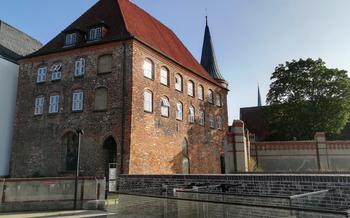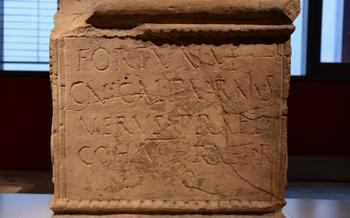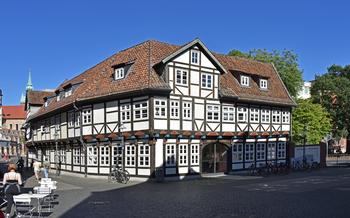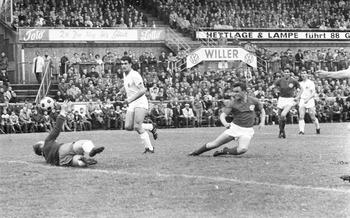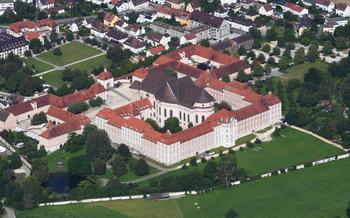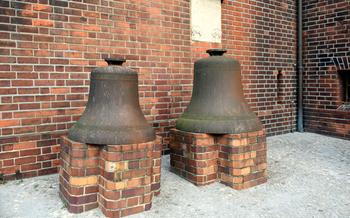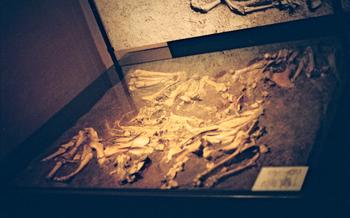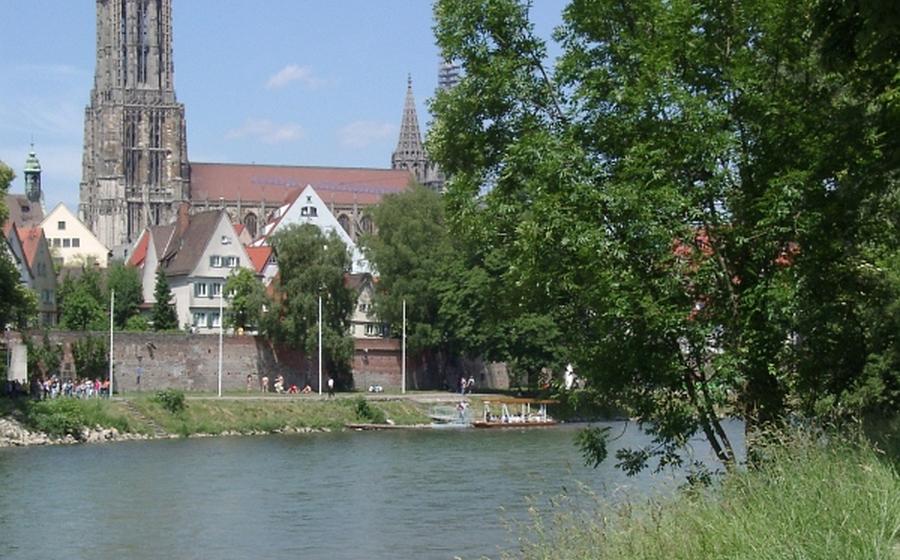
The Bread Culture Museum (Museum der Brotkultur)
- The Bread Culture Museum (Museum der Brotkultur): A Culinary Journey
- Unveiling the History of Bread
- A Sensory Adventure: Tasting the Breads of the World
- The Art of Baking: A Hands-On Experience
- The Science Behind the Loaf: Exploring the Chemistry of Bread
- The Cultural Significance of Bread: Breaking Bread Together
- A Culinary Journey Through Time: Historic Bread Recipes
- The Bread Museum Café: A Taste of Deliciousness
- Workshops and Classes: Mastering the Art of Bread-Making
- Interactive Exhibits: Engaging Visitors of All Ages
- Temporary Exhibitions: Exploring Diverse Bread Cultures
- Guided Tours: Unveiling the Stories Behind the Exhibits
- Museum Shop: A Bread-Lover's Paradise
- Accessibility and Facilities: Ensuring a Comfortable Visit
- Insider Tip: Discovering the Hidden Gem of the Museum
The Bread Culture Museum (Museum der Brotkultur): A Culinary Journey
Situated in the heart of Ulm, Germany, the Bread Culture Museum (Museum der Brotkultur) is a fascinating tribute to the world of bread and its rich history. Founded in 1953, the museum is housed in a former mill, adding to its charm and authenticity. With its comprehensive collection of artifacts, interactive exhibits, and hands-on workshops, the Bread Culture Museum offers a captivating journey into the world's most beloved food.
Conveniently located near the Ulm Cathedral and easily accessible by public transport, the museum welcomes visitors from all over the world. Its unique exhibits and displays, ranging from ancient bread-making tools to contemporary baking innovations, make it a must-visit for bread enthusiasts and anyone interested in culinary history.
Among the highlights of the museum are the interactive bread-making workshops, where visitors can learn the art of baking from experienced bakers. With step-by-step guidance, participants can create their own unique bread creations, using traditional techniques and ingredients. The museum also features guided bread tastings and demonstrations, allowing visitors to sample a variety of breads from different countries and cultures, while learning about their unique flavors and textures.
Unveiling the History of Bread
The Bread Culture Museum is dedicated to preserving and showcasing the rich history of bread, a staple food that has played a crucial role in human civilization for millennia. The museum's mission is to educate visitors about the cultural, historical, and scientific significance of bread, while also promoting the appreciation of traditional bread-making techniques. Bread has been an integral part of German culture for centuries, with each region boasting its unique bread specialties. The museum highlights the diversity of German bread varieties, from the hearty pumpernickel to the delicate weißbrot. Traditional bread-making techniques, passed down through generations, are demonstrated and explained, showcasing the skill and craftsmanship involved in creating the perfect loaf. The museum also traces the evolution of bread-making technology, from simple hand-kneading to modern industrial processes, providing a comprehensive overview of the history of this essential foodstuff.
A Sensory Adventure: Tasting the Breads of the World
The Bread Culture Museum offers a unique sensory experience through its vast collection of bread samples from different countries. Embark on a culinary journey as you savor the diverse flavors and textures of breads from around the globe. Guided bread tastings and demonstrations provide an opportunity to learn about the unique ingredients and techniques used in each variety. Interactive exhibits showcase the different types of flour, grains, and seeds used in bread-making, allowing you to understand the impact of these ingredients on the final product. Whether you prefer the tangy sourdough of San Francisco, the crispy baguette of Paris, or the dense pumpernickel of Germany, the Bread Culture Museum offers a taste of the world's most beloved breads.
The Art of Baking: A Hands-On Experience
The Bread Culture Museum offers a unique opportunity for visitors to immerse themselves in the art of bread-making through interactive workshops. These workshops are designed for people of all ages and skill levels, providing a hands-on experience that allows participants to create their own unique bread creations.
Under the guidance of expert bakers, visitors will learn the essential steps of bread-making, from measuring and mixing ingredients to kneading, shaping, and baking. The workshops provide a comprehensive understanding of the baking process, allowing participants to experiment with different techniques and discover the joy of creating their own delicious bread.
The museum's state-of-the-art baking facilities are equipped with everything needed for a successful baking experience. Participants will have access to ovens, mixers, and all the necessary tools to create their own unique loaves.
Whether you're a seasoned baker or just starting out, these workshops are a fantastic way to learn more about the art of bread-making and create delicious, homemade bread that you can share with friends and family.
The Science Behind the Loaf: Exploring the Chemistry of Bread
The Bread Culture Museum takes visitors on a journey into the fascinating world of bread science. Interactive exhibits delve into the chemistry behind this humble yet essential food, revealing the secrets of its transformation from simple ingredients into a golden-brown loaf. Understand the crucial role of yeast, flour, and water in the bread-making process, and witness the magic of fermentation and baking firsthand. Demonstrations and experiments bring the science of bread to life, allowing visitors to witness the chemical reactions that occur during the baking process. Discover the secrets of creating the perfect loaf, from the role of gluten in providing structure to the impact of temperature and humidity on the final product.
The Cultural Significance of Bread: Breaking Bread Together
Bread holds a profound cultural significance beyond its nutritional value, symbolizing community, hospitality, and unity. In many cultures, breaking bread together is a cherished ritual that fosters a sense of belonging and shared experiences. In religious ceremonies and festivals, bread often takes on a sacred role, representing the body of Christ in Christianity, for example, or serving as a symbol of abundance and prosperity in harvest festivals. Bread is also deeply intertwined with social and economic life, acting as a form of currency in ancient civilizations and serving as a staple food for people of all socioeconomic backgrounds. Its versatility and affordability have made it a cornerstone of cuisines worldwide, contributing to its enduring cultural significance and appeal.
A Culinary Journey Through Time: Historic Bread Recipes
The Bread Culture Museum takes visitors on a culinary journey through time, showcasing historic bread recipes from different eras. These recipes offer a glimpse into the evolution of bread-making techniques and provide insights into the dietary habits of our ancestors. Visitors can explore a collection of ancient bread recipes, from the simple flatbreads of early civilizations to the elaborate sourdough loaves of the Middle Ages. Tasting sessions featuring these historic bread varieties allow visitors to experience the flavors and textures of breads that have been enjoyed for centuries. Through this journey through time, the museum highlights the rich cultural heritage of bread and its enduring significance as a staple food and symbol of sustenance.
The Bread Museum Café: A Taste of Deliciousness
The Bread Culture Museum in Ulm, Germany, offers not just a journey through the history of bread but also a culinary adventure at its on-site café. Visitors can savor the deliciousness of freshly baked breads, pastries, and sandwiches, all prepared using local and seasonal ingredients. The café's menu celebrates the versatility and diversity of bread, showcasing its role as a culinary staple. From traditional German bread varieties to innovative creations, there's something to satisfy every palate. Whether enjoying a leisurely breakfast, a quick lunch, or an afternoon snack, the Bread Museum Café is the perfect place to relax and indulge in the goodness of bread.
Workshops and Classes: Mastering the Art of Bread-Making
The Bread Culture Museum offers a range of workshops and classes for aspiring bakers of all skill levels. These classes provide an immersive and hands-on experience, allowing participants to learn the art of bread-making from experienced bakers and bread enthusiasts.
In these workshops, participants will embark on a culinary journey, exploring the techniques and traditions of bread-making. They will learn how to select the right ingredients, mix and knead the dough, shape and proof the loaves, and bake them to perfection. Step-by-step guidance and demonstrations ensure that participants understand each step of the process.
Participants will have the opportunity to create their own unique bread creations, experimenting with different flours, grains, and flavors. They will also learn how to create their own sourdough starter, a key ingredient in many traditional bread recipes.
These workshops provide a fun and educational experience, allowing participants to gain a deeper appreciation for the art and science of bread-making. Whether you're a novice baker or an experienced sourdough enthusiast, you'll find something to learn and enjoy at the Bread Culture Museum's workshops.
Interactive Exhibits: Engaging Visitors of All Ages
The Bread Culture Museum is not just a place to learn about the history and science of bread; it's also a fun and interactive experience for visitors of all ages. Multimedia displays, games, and activities bring the world of bread to life, making it a truly immersive and engaging experience.
Children can play interactive games that teach them about the different ingredients used in bread-making, the process of baking, and the cultural significance of bread. They can also get hands-on experience with bread-making by participating in workshops and classes designed specifically for kids.
Adults can enjoy a variety of interactive exhibits that explore the science behind bread-making, the history of bread in different cultures, and the role of bread in art and literature. There are also opportunities to taste different types of bread from around the world and to learn about the unique flavors and textures of each variety.
Whether you're a child or an adult, the Bread Culture Museum's interactive exhibits offer a fun and engaging way to learn about the fascinating world of bread.
Temporary Exhibitions: Exploring Diverse Bread Cultures
The Bread Culture Museum recognizes the global significance of bread by hosting regular temporary exhibitions that delve into diverse bread-making traditions from around the world. Through collaborations with other museums and institutions, these exhibitions showcase unique baking techniques, ingredients, and cultural rituals associated with bread. Visitors have the opportunity to embark on a culinary journey, exploring the rich diversity of bread cultures and gaining insights into the global significance of this staple food. Temporary exhibitions provide a platform for cultural exchange and dialogue, fostering a deeper appreciation for the role of bread in human history and society.
Guided Tours: Unveiling the Stories Behind the Exhibits
Enhance your visit to the Bread Culture Museum by joining a guided tour led by knowledgeable museum staff. These passionate experts will take you on a journey through the world of bread, unveiling the stories behind the exhibits and providing in-depth insights into the museum's collection.
Discover the rich history of bread, from its humble origins to its cultural significance around the world. Learn about the traditional bread-making techniques that have been passed down through generations, and gain an understanding of the role that bread has played in shaping communities and economies.
With behind-the-scenes access and exclusive stories, these guided tours offer a personalized and enriching experience. Ask questions, engage in discussions, and gain a deeper appreciation for the fascinating world of bread and its cultural significance.
Whether you're a bread enthusiast, a history buff, or simply looking for a unique and educational experience, the guided tours at the Bread Culture Museum are sure to leave you inspired and informed.
Book your guided tour in advance to secure your spot and avoid any disappointment.
Museum Shop: A Bread-Lover's Paradise
After your sensory journey through the world of bread, the museum shop beckons you to take a piece of the experience home. A treasure trove for bread enthusiasts, the shop offers a diverse selection of bread-related merchandise. Books, souvenirs, and gifts for all ages line the shelves, inviting you to delve deeper into the world of bread-making. Specialty items such as bread-making kits and baking accessories allow you to recreate the magic of the museum in your own kitchen. Whether you're a seasoned baker or just starting your bread-making adventure, the museum shop has something for everyone. So, indulge in a shopping spree and take a piece of the Bread Culture Museum experience with you.
Accessibility and Facilities: Ensuring a Comfortable Visit
The Bread Culture Museum is committed to ensuring a welcoming and inclusive environment for all visitors. Wheelchair accessibility is a top priority, with ramps, elevators, and accessible restrooms throughout the museum. Visitors with disabilities can also request assistance from the friendly museum staff, who are always happy to help.
Audio guides in multiple languages are available for rent, providing a comprehensive and informative tour of the exhibits. Multilingual materials, such as brochures and signage, are also available to ensure that visitors from all over the world can fully enjoy the museum experience.
Families with young children are well-catered for, with changing tables and strollers available for convenience. The museum also offers a range of educational programs and activities specifically designed for children, making it a great place for a family day out.
Overall, the Bread Culture Museum is a well-equipped and accessible venue that strives to provide a comfortable and enjoyable experience for all visitors.
Insider Tip: Discovering the Hidden Gem of the Museum
For an unforgettable and immersive experience, visitors should seek out the museum's hidden gem - a secret recipe for a unique bread variety. This special bread, passed down through generations, can be made upon request, allowing visitors to savor a truly authentic taste of German bread-making tradition.
Additionally, the museum's rooftop garden offers a tranquil oasis amidst the bustling city. Visitors can take a moment to relax and enjoy the panoramic views while learning about the herbs and grains used in bread-making.
For those interested in delving deeper into the history of bread, guided tours of the museum's historic mill are available. These tours provide exclusive insights into the traditional methods used to grind flour and produce bread. Visitors can witness the mill's intricate machinery in action and gain a deeper appreciation for the craftsmanship involved in bread-making.
Whether it's discovering a secret recipe, exploring the rooftop garden, or embarking on a guided tour of the historic mill, the Bread Culture Museum offers visitors a truly unique and memorable experience.

